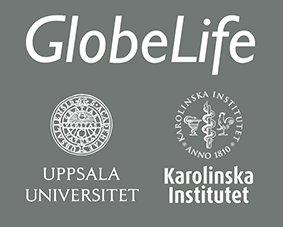Abstract submission
Welcome to the online abstract submission system for DevRes 2022!
The thematic areas below are key topics that reflect the main theme of the conference ‘Transforming development research for sustainability’. Each theme represents one or more parallel sessions that may take place during the conference. Accepted abstracts will be grouped within these thematic areas by the Organizing Committee to build a programme that reflects the overarching theme of the conference. The thematic areas have been left quite broad to encourage researchers, graduate students, PhD students and practitioners from a variety of disciplines to apply and present new research findings, innovative strategies, and tools to tackle these key topics. If there are any questions relating to the call for abstracts or themes presented, please reach out to the organizing committee at DevRes2022@uu.se.
The abstract submission is now closed!
Rules
This page outlines all of the information you need to prepare for submission.
Submission deadline
The abstract submission has been extended to March 7, 2022.
Proposal for abstracts
Theme: You will need to select one of the conference themes. You can read a more detailed description of the themes further down on this page.
- Urbanization and its impact on health and development
- Shifts in sustainability in the context of COVID-19
- Sustainable water management and sanitation systems
- Migration, health and development
- Diversity and gender in sustainability initiatives
- Sustainability along the value chains for food systems
- Handling future pandemics
- Planetary and One health
- AI based technological leapfrogging for health and development
- Circular cities and their impact on health and development
- Multisectoral research and policy transition
- Inequalities and future needs in sustainable development partnerships
Title: The abstract title is limited to 150 characters. Do not use capital letters unless abbreviations or similar.
Authors and affiliations: Please enter authors’ names and affiliations in the dedicated fields. Do not use capital letters unless abbreviations or similar.
Words: There is a 400 word limit for the abstract text. Please make sure that the abstract text includes the following at a minimum:
- Introduction
- Methods
- Results
- Conclusions
Image: The abstract allows for no images.
Presentation type: Please indicate the preferred presentation type of either Oral or Poster. Note: If an abstract is submitted as an oral presentation, it may be accepted by the committee as a poster instead.
If selected the organizers may shift your presentation type and move to another corresponding theme if better suited.
Scoring of abstracts
The individual abstracts will be selected on the basis of: (i) technical/scientific merit; (ii) relevance to the conference and thematic areas; (iii) originality and innovation.
Travel Grants and Registration Scholarships
-
-
- Limited funding is available for travel grants for researchers and students from Low and Middle Income Countries. These travel grants must be applied for in connection with the abstract submissions system (by filling in ‘yes, I would like to apply for the travel grant’ on the final question in the abstract submission form). Onsite travel grants will be prioritized for those with accepted papers (abstracts) for the parallels sessions. Successful applicants will be notified by the beginning of May 2022.
- We also plan to have limited funding available to support the registration costs for online participants from the countries indicated above, please apply for this in the same way noted above.
-
Themes for Organized Presentations
- Urbanization and its impact on health and development
As urbanization continues to grow the impacts on health and development are becoming better understood. Urbanization as a phenomenon has supported the economic development and success of many countries. Though, not all urban populations experience this wealth, as socio-economic inequities are increasing. A variety of factors in urban areas can impact the health of the individual and community. These can include, pollution, poor access to good nutrition, poor sanitation, overcrowding and sedentary lifestyle changes. Where does the future of urbanization lie in the balance or competing priorities between health, development and sustainability?
- Shifts in sustainability in the context of COVID-19
COVID-19 has greatly impacted the global economy, and our normal day to day interactions. Lockdowns and measures taken during the height of the pandemic led to promising decreases in carbon emissions, and air pollution, as traveling slowed and working from home became more of a mainstay. On the other hand, border restrictions led to issues with supply and demand, wastage of goods, the prevention measures associated with COVID-19 have led to an over-consumption of single use products and global inequities in vaccine distribution have led to heightened political and social tensions. Many sustainability and environmental initiatives have either been paused or forgotten altogether. It still remains to be seen what the overall impact of COVID-19 will be on global sustainability measures and what lessons we can learn as a society.
- Sustainable water management and sanitation systems
Proper water management and sanitation systems can act as a catalyst for achieving sustainable development. Sanitation systems when working effectively can reduce health and environmental risks and communities can benefit from secure livelihoods, and better food security. Exploring the systems that impact sanitation and clean water, such as governance, and population knowledge and practices, can support the implementation of more sustainable sanitation systems. What are the other benefits associated with proper sanitation systems and water management and what challenges still lie ahead in developing sustainable water systems globally?
- Migration, health and development
International migration has continued to increase globally over the last three decades and has contributed to the development in both host and origin countries. Further, internal migration is occurring at even greater rates. Reasons for migration are often interconnected and complex and may be tied to multiple ‘migration drivers’. Migration brings both opportunities for growth but also challenges for host and origin countries, as well as the regions in which internal migrants move to. Migrants often face barriers in accessing and utilizing healthcare and other services in host countries. Research plays an important role in ensuring the SDG goal of ‘leaving no one behind’ is met and enabling solutions for reaching other global targets on migration, health and development.
- Diversity and gender in sustainability initiatives
Sustainability initiatives can encompass a number of aspects including environmental, economic and social factors. The social factors of sustainability include the individuals, genders and diversity exemplified within a society. Different sub-population face different inequalities and inequities that impact sustainability. Power dynamics for sub-populations within a community may mean that some populations have less access to resources, less autonomy, and different priorities and needs when it comes to sustainability. Research has an important role in ensuring that sub-populations are incorporated within sustainability initiatives, and that this is reflected within policies, to ensure that sustainable solutions are developed for all.
- Sustainability along the value chains for food systems
Value chains for food systems include a variety of stakeholders who are essential to produce safe, healthy, affordable and accessible food products. A sustainable value chain ensures that the three key components of sustainability (economic, social and environmental) are met. Global and national food systems are complex, and constantly evolving, and a systems approach enables critical insight into vulnerabilities, inefficiencies, and inequities. Moreover, food systems are a prime example of the necessity for multisectoral action in order to contribute to health cities and healthy populations.
- Handling future pandemics
COVID-19 has greatly impacted humankind, and while the effects of this pandemic are still ongoing, it is essential that we look forward to how we will handle future pandemics. Therefore, apart from the medical solutions, we must explore other critical challenges, including vaccine hesitancy, globalization, global governance, and climate change that have been brought to light as essential in context of COVID-19.
- Planetary and One Health
Planetary and One Health are developing fields that explore the interconnectedness of humankind, other animals, and the planet. This is a transdisciplinary and multisectoral field that works to understand how humans impact the Earth and how the health of our planet in turn impacts the health of all flora and fauna. The health of Earth is on the decline and this impact is felt by humans as places become more inhabitable, air quality shifts and the risk of infectious disease becomes greater. To safeguard our health, the animals in our ecosystems and the planets, we must understand the challenges that arise from this interconnectedness and work across traditional research ‘silos’ to enact better understanding and enable change.
- Artificial Intelligence based technological leapfrogging for health and development
Artificial Intelligence (AI) has been heralded as an essential tool to meet our sustainable development goals. AI technology can allow us to develop systems and solutions that are more efficient, and allow us to use resources more sustainably and effectively. AI technologies are already being used across many industries, such as the energy sector, agriculture and the healthcare sector. How and where will AI based technologies be used in the future to support the global goals for health, development and sustainability, and what are the challenges for adopting AI based technologies?
- Circular cities and their impact on health and development
Transitions to circular cities and circular economies have been shown to support the reduction in energy production, greenhouse gas emissions and waste production. These transitions can enable sustainable growth and research has been focused on the impact this has on development and achieving global sustainability goals. Circular cities also have the opportunity to provide immense health benefits, such as decreasing healthcare costs and reducing harmful environmental impacts which affect societies today. Yet, further evidence is needed to understand the health benefits and risks associated with transitioning to circular cities, and how this interlinks with inequalities within cities and sustainable development.
- Multisectoral research and policy transition
The disconnect between research to policy transition is further complicated by the complex realities of multisectoral research. There is a need to explore why and how solutions should be better synchronized and integrated within and between sectors to achieve the intended outcomes. This is essential in order to promote effective solutions and foster fresh narratives that enable the political will necessary to promote change. Currently, are our research paradigms timely enough, and are four-year intervals appropriate in ensuring that we are responsive enough to the sectoral challenges that development and sustainability present?
- Inequalities and future needs in sustainable development partnerships
Global initiatives and partnerships are already widespread, yet, are these initiatives being implemented in a way that address the inequalities amongst populations and countries. The sharing of resources, and expertise should reflect the needs that communities have around the globe, and power structures should be examined to ensure truly equitable partnerships. How are partnerships being shaped, and who are the individuals, organizations and countries being invited to collaborate? What are the measures that researchers, organizations, agencies and governments need to take to promote partnerships that encourage sustainable development for all?
Contact
Academic Conferences
Box 7059
750 07 Uppsala, Sweden
Phone: + 46 (0) 18 67 10 03
E-mail: DevRes2022@akademikonferens.se
Important dates
6 December 2021: Abstract submission opens
7 March 2022: Extended deadline for abstract submission
End of April 2022: Notification of abstract acceptance
16 May 2022: Opening of registration









